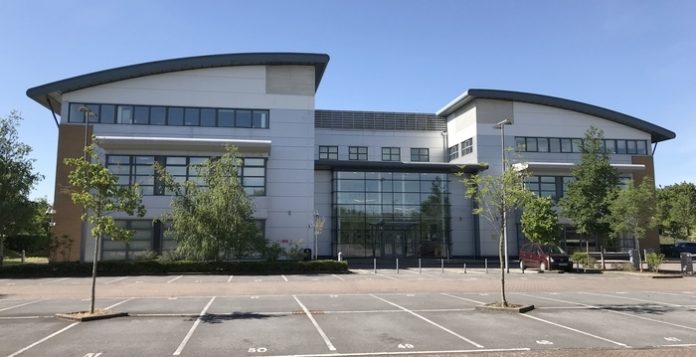By Jonathan Ling MSc MRICS, Director, Stratton Creber Commercial:
There are some dire predictions out there at the moment, from which we might believe that the country’s entire supply of office space has been rendered redundant virtually overnight. Picture tens of millions of square metres of our built environment having no role in the future of mankind. Picture tens of thousands of landlords seeing their investment portfolios go up in smoke.
“The game is up for the office as we know it.”
“Anyone who thinks we are going back to the way we were is bananas.”
The quotes above come from a recent article on the BBC. We have seen in the headlines that some major US tech companies are inviting their workforce to work from home, not just for now, but for ever. Perhaps the office, it now turns out, was a distinctly Twentieth Century phenomenon, with its regimented grids of bright lights, workers in rows like battery animals, and the legendary den of intrigue and gossip – the coffee machine.
Welcome to the dawn of a new era, in which we need not leave home to work, we only meet via video link and the office networking event is a pub quiz via Zoom. Do you find this vision utopian or dystopian?
Consider for a minute how your team has been functioning in lockdown. If you are lucky, then the office banter has neatly transferred to WhatsApp or Zoom; If you are very lucky indeed, everyone contributes, people feel free to discuss, not only their successes at work and their humour, but also their worries, and they find support from colleagues.
Now look three years into the future, when you have not worked together in one place for that whole time. Members of the team have gone, others have joined; some have had difficulties at work, others have had problems in their lives outside work. How is your team functioning now? How comfortable will you be when it comes to the annual appraisal? Will you understand people’s performance, their needs, their expectations and their concerns like you did when you shared a workspace?
The telephone was invented 144 years ago. Email can trace its history back to 1971. Video conferencing was invented in the sixties and grew with the internet. All of these ways of communicating brought us together over distance and made face-to-face meetings less crucial. And yet we still want to meet the people we work with, because we are social creatures. There is something intangible from meeting in person, seeing “the whites of their eyes”.
A decade ago, Google famously launched its innovative office concept, and a number of other hi-tech American companies followed. And yet, working in the office sector in the South West of England, I have yet to see an office where people sit on yoga balls, travel between floors on twirly slides or glide between desks on scooters. This is one reason why I predict that the headline-grabbing move of California-based tech companies towards full home-working will be of little relevance to how offices are occupied in this part of the world in years to come.
Of course, not having your own office does not mean that you never meet colleagues, clients or fellow professionals. You might choose to work from home, with meetings, interviews and appraisals held in serviced offices, cafés and other shared spaces, and you will still socialise and network once lockdown eases. Some companies will certainly do this, but they will be mainly the smallest firms or teams, and some sectors will work better than others this way. Other companies – in fact, most – will change the way they work and deliver services to some extent. There will be immediate changes, to enable them to re-open with social distancing, and then there will be longer-term changes as businesses adapt to new ways of working.
Now, back to those quotes at the beginning of my article. The game may be up for the office as we know it, but this certainly does not mean that we will not need offices any more, but rather that we will embrace emerging ways of working, and this will have implications for how we design and use offices. The pace of change has accelerated in 2020, and owners and occupiers of offices must rise to the challenges and embrace the opportunities.



















